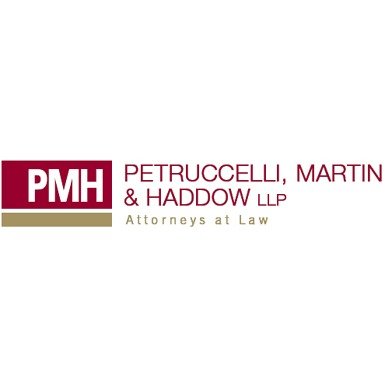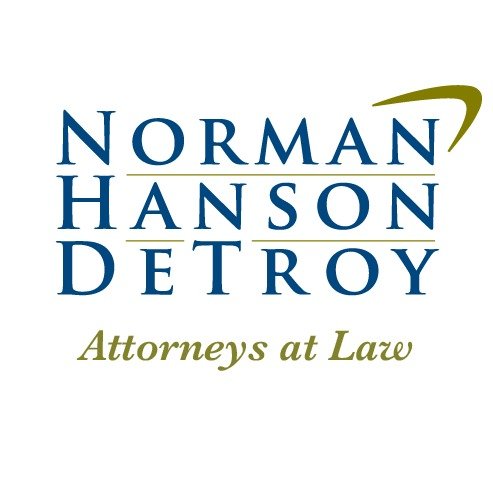Best Public-Private Partnerships (PPP) Lawyers in Maine
Share your needs with us, get contacted by law firms.
Free. Takes 2 min.
Or refine your search by selecting a city:
List of the best lawyers in Maine, United States
About Public-Private Partnerships (PPP) Law in Maine, United States
Public-Private Partnerships (PPP) are cooperative arrangements between government entities and private sector companies to design, finance, construct, and operate public infrastructure or services. In Maine, PPPs are increasingly used for projects such as roads, bridges, public buildings, water supply systems, and even broadband networks. The core idea is to leverage the strengths of both sectors - the efficiency and innovation of private enterprise combined with the public sector's commitment to serving community needs. While PPPs offer benefits like cost savings and accelerated project delivery, they also bring legal and regulatory complexities specific to Maine's governmental framework.
Why You May Need a Lawyer
Engaging in a Public-Private Partnership can involve intricate legal agreements, governmental approvals, regulatory compliance, and risk-sharing arrangements. Some common situations where you may need legal help in Maine's PPP landscape include:
- Negotiating or drafting PPP contracts to ensure your interests are protected
- Understanding the requirements for bidding on a PPP project
- Navigating public procurement laws and competitive solicitation processes
- Resolving disputes between public and private partners
- Addressing issues of project financing and risk allocation
- Ensuring compliance with state-specific regulations, environmental standards, and labor laws
- Assisting with permit applications and regulatory approvals
- Evaluating tax incentives, public funding mechanisms, or grant eligibility
- Managing intellectual property rights related to project innovations
- Advising on transparency, disclosure, and public accountability requirements
Local Laws Overview
Maine's approach to PPPs is regulated primarily through state statutes, administrative rules, and local ordinances. Key aspects of Maine law that impact PPP projects include:
- The Maine Revised Statutes, notably Title 23 (Transportation), Title 35-A (Public Utilities), and Title 38 (Environment), all of which may affect PPPs depending on project scope
- Procurement standards that require open, competitive bidding for government contracts
- Specific PPP enabling legislation for sectors like transportation, which governs how these agreements can be structured and implemented
- Municipal home rule provisions that allow cities and towns to develop their own PPP policies, provided they are consistent with state law
- Requirements for project transparency, public input, and compliance with Maine Freedom of Access Act
- Regulations related to funding mechanisms, such as tax-exempt bonds, user fees, or state grants
- Labor standards including prevailing wage laws on public works
- Environmental impact review processes mandated by state agencies for many large-scale projects
PPP laws in Maine are still evolving, and every project is subject to a detailed legal review based on its unique characteristics and the agencies involved.
Frequently Asked Questions
What is a Public-Private Partnership (PPP) in the context of Maine?
A PPP in Maine is a legally binding arrangement between a government entity and a private company to collaboratively develop, finance, operate, or maintain public infrastructure or services.
Are there specific Maine laws governing PPP agreements?
Yes, Maine statutes set requirements for specific sectors, such as transportation and public utilities. Additionally, general state procurement and contracting laws apply to all PPP projects.
Can municipalities in Maine enter into PPP agreements?
Yes, Maine's home rule authority allows municipalities to enter into PPP arrangements if they comply with state and local regulations.
How are PPP projects selected in Maine?
Most projects require a competitive bidding or solicitation process, although some statutes allow for unsolicited proposals under defined circumstances.
What types of projects are most commonly delivered through PPPs in Maine?
Transportation infrastructure, public buildings, water and wastewater treatment, and broadband networks are among the most frequent PPP projects in Maine.
How is risk allocated between public and private partners?
PPP contracts detail how project risks, such as construction delays, cost overruns, or revenue shortfalls, are shared or assigned between partners.
What regulatory approvals are typically needed for a PPP project in Maine?
Approvals vary by project but often include permitting, environmental review, and oversight from agencies like Maine DOT or the Public Utilities Commission.
What funding mechanisms are available for PPP projects in Maine?
PPP projects may be funded by a mix of public funds, private capital, tax-exempt bonds, grants, or user fees, depending on the structure of the agreement.
What are common challenges encountered in Maine PPP projects?
Challenges include navigating complex regulations, securing financing, addressing community concerns, balancing public and private interests, and ensuring project accountability.
Do PPP agreements in Maine require public disclosure?
Most PPP agreements are subject to Maine's Freedom of Access Act, which requires transparency and public access to many official records and proceedings.
Additional Resources
Maine residents and businesses exploring PPP opportunities or facing PPP legal issues may find the following resources helpful:
- Maine Department of Transportation (Maine DOT): Provides guidance on transportation-related PPP opportunities and regulations
- Maine Public Utilities Commission: Oversees utility infrastructure that may be eligible for PPP
- Maine Municipal Association: Offers support to local governments interested in PPP initiatives
- Governor's Office of Policy Innovation and the Future: Sometimes releases reports and best practices for innovative public projects, including PPP
- Maine Freedom of Access Act (FOAA): Ensures the right to access public records related to PPP
- Local city or county government offices: For guidance on municipal PPP regulations and initiatives
Consulting these bodies can provide up-to-date information about available programs and legal requirements in Maine.
Next Steps
If you are considering entering into, bidding on, or managing a Public-Private Partnership in Maine, it is advisable to:
- Conduct initial research about the applicable sector and suitable PPP models
- Contact relevant state or municipal agencies for project eligibility requirements and regulations
- Maintain records of your communications and proposals for future reference
- Seek advice from a lawyer with experience in Maine PPP and public procurement law
- Prepare to participate in public meetings or hearings if community engagement is required
- Stay informed about any changes in state or local PPP statutes that may impact your project
A qualified lawyer can help you navigate the complexities of PPP projects, draft and review contracts, ensure regulatory compliance, and protect your interests throughout the process.
Lawzana helps you find the best lawyers and law firms in Maine through a curated and pre-screened list of qualified legal professionals. Our platform offers rankings and detailed profiles of attorneys and law firms, allowing you to compare based on practice areas, including Public-Private Partnerships (PPP), experience, and client feedback.
Each profile includes a description of the firm's areas of practice, client reviews, team members and partners, year of establishment, spoken languages, office locations, contact information, social media presence, and any published articles or resources. Most firms on our platform speak English and are experienced in both local and international legal matters.
Get a quote from top-rated law firms in Maine, United States — quickly, securely, and without unnecessary hassle.
Disclaimer:
The information provided on this page is for general informational purposes only and does not constitute legal advice. While we strive to ensure the accuracy and relevance of the content, legal information may change over time, and interpretations of the law can vary. You should always consult with a qualified legal professional for advice specific to your situation.
We disclaim all liability for actions taken or not taken based on the content of this page. If you believe any information is incorrect or outdated, please contact us, and we will review and update it where appropriate.
Browse public-private partnerships (ppp) law firms by city in Maine
Refine your search by selecting a city.












